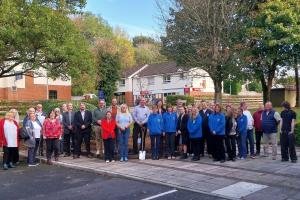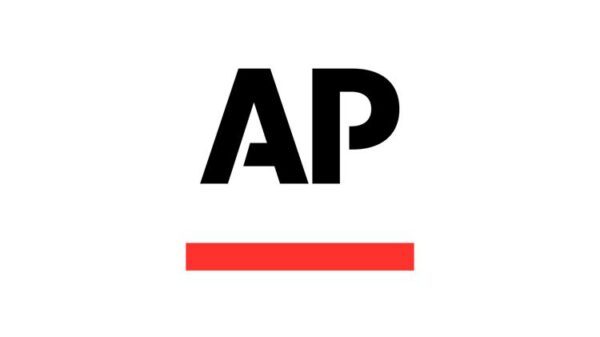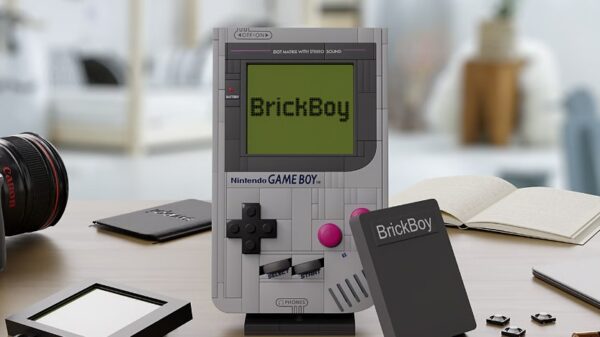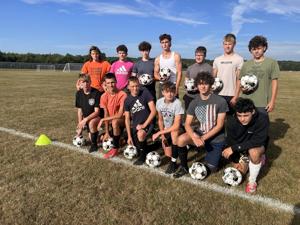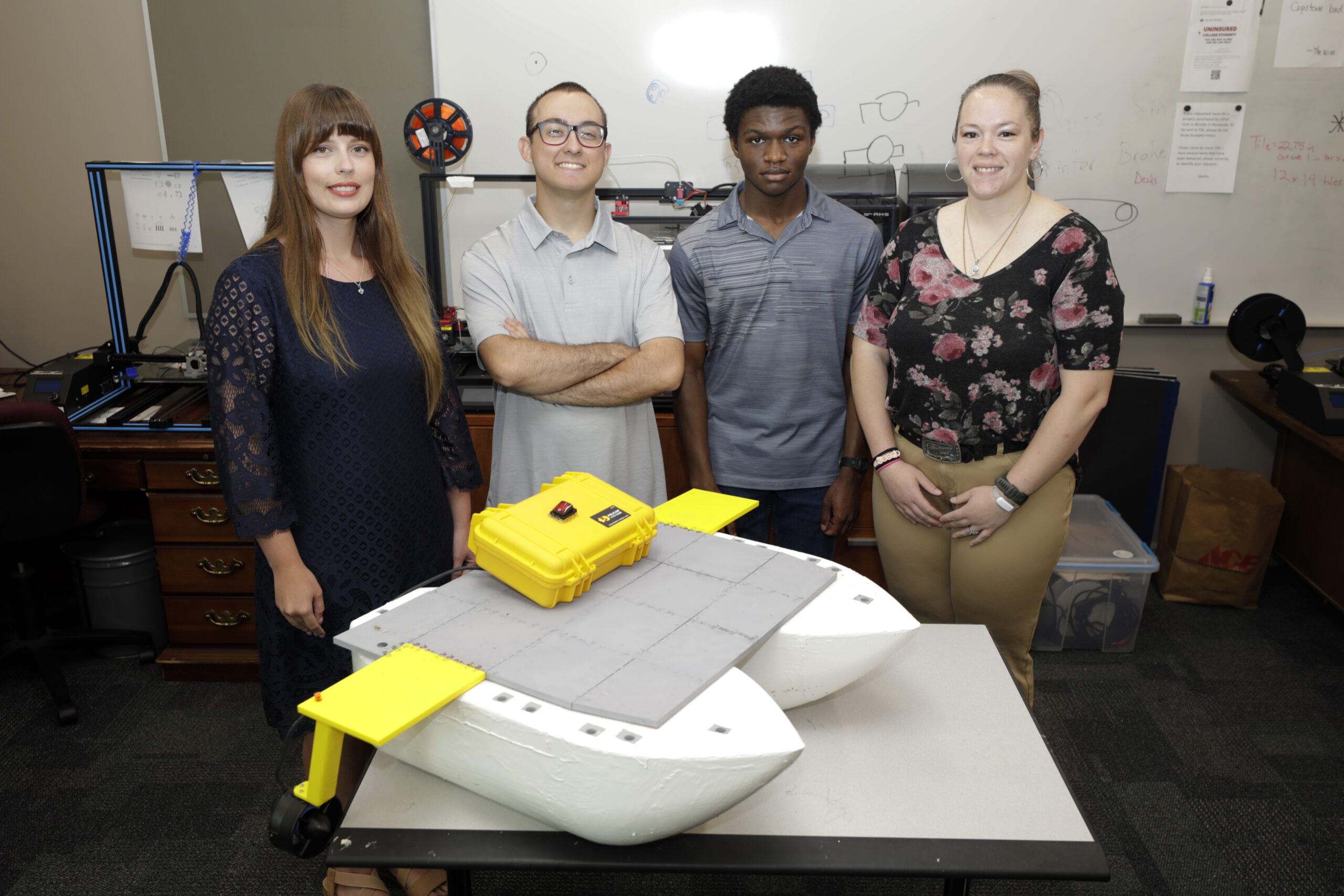A team of four University of West Florida (UWF) students has partnered with the Naval Surface Warfare Center in Panama City, Florida, to develop a RoboBoat kit aimed at sparking high school students’ interest in marine robotics. This initiative, led by Dr. Damion Dunlap, STEM Outreach Manager at the Naval Surface Warfare Center Panama City Division, seeks to engage the next generation in science, technology, engineering, and mathematics (STEM) fields.
Dr. Dunlap collaborated with students from the UWF Hal Marcus College of Science and Engineering in Fort Walton Beach to create a cost-effective and engaging kit. “We decided that this project would be an amazing way to help high school students become more excited about STEM in an inexpensive and cost-effective way,” said Ashley Schnaible, a senior computer engineering student involved in the project. The RoboBoat kit is designed to be used in competitions, offering a hands-on experience that mimics building a giant Lego set.
Building the RoboBoat: A Collaborative Effort
Throughout the Fall 2024 semester, Schnaible, along with fellow students Heather Sasser, David Laird, and Xavier Frank, worked under the guidance of Dr. Jeff McGuirk, a senior lecturer in electrical and computer engineering and former United States Air Force developmental engineer. Their task was to construct the platform of the RoboBoat, while their peers at Florida Polytechnic University focused on the computer components.
After numerous trials and tests with various designs and materials, the UWF team opted to 3D print the RoboBoat using PLA filament. They ensured its waterproofing by applying multiple layers of Flex Seal. Once printed and tested for buoyancy, they equipped the boat with essential components such as thrusters and a waterproof case to house the battery, microcontroller, and wiring. The final product operates like a standard RoboBoat, controlled via an RC remote.
Inspiring Future Engineers
The project not only provided UWF students with practical engineering experience but also served as a prototype for high school students involved in a summer internship program at the Naval Surface Warfare Center Panama City Division. These students, guided by Dr. Dunlap, will build upon the lessons learned from the UWF project to construct another RoboBoat.
“This project gave us the opportunity to explore multiple ways of constructing a functioning RoboBoat kit using materials that students could obtain rather easily,” Schnaible explained. “It also gave our team the opportunity to be giant kids ourselves, having fun with the build.”
Broader Implications and Future Prospects
This initiative comes at a time when there is a growing emphasis on STEM education to prepare students for future careers in technology and engineering. By engaging students in hands-on projects like the RoboBoat, educational institutions and partners like the Naval Surface Warfare Center are fostering a practical understanding of engineering concepts and encouraging innovation.
According to the National Science Foundation, STEM jobs are expected to grow by 8.8% from 2018 to 2028, outpacing the 5% growth rate projected for non-STEM occupations. Initiatives like the RoboBoat project are crucial in ensuring that students are not only prepared for these roles but are also inspired to pursue them.
“The future of engineering and technology lies in the hands of our youth. Projects like the RoboBoat are essential in bridging the gap between theoretical knowledge and practical application,” said Dr. McGuirk.
As the summer progresses, the continuation of the RoboBoat project will provide valuable insights and experiences for the participating high school students. This hands-on approach is expected to further ignite their interest in pursuing STEM careers, potentially leading to more innovative projects and collaborations in the future.
For more information about the Hal Marcus College of Science and Engineering, visit uwf.edu/hmcse.



